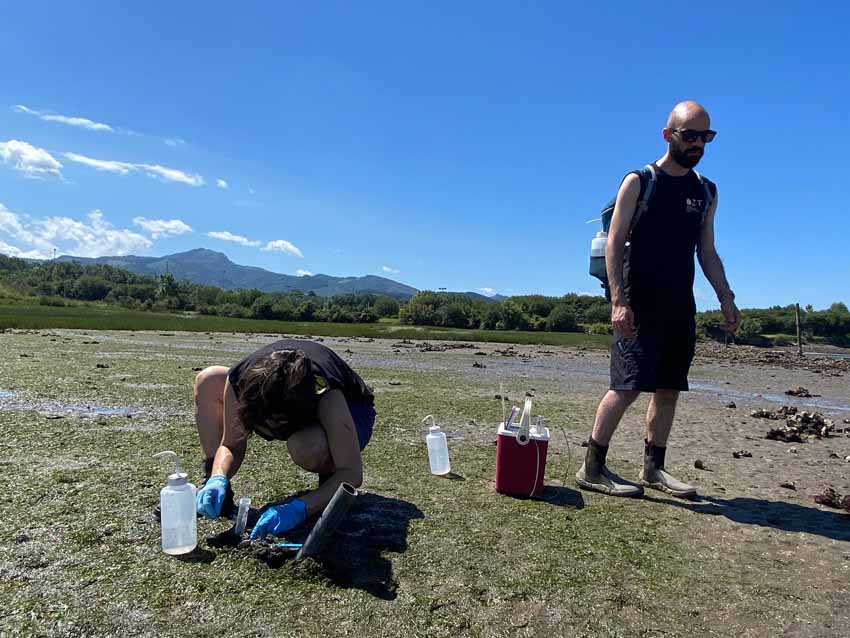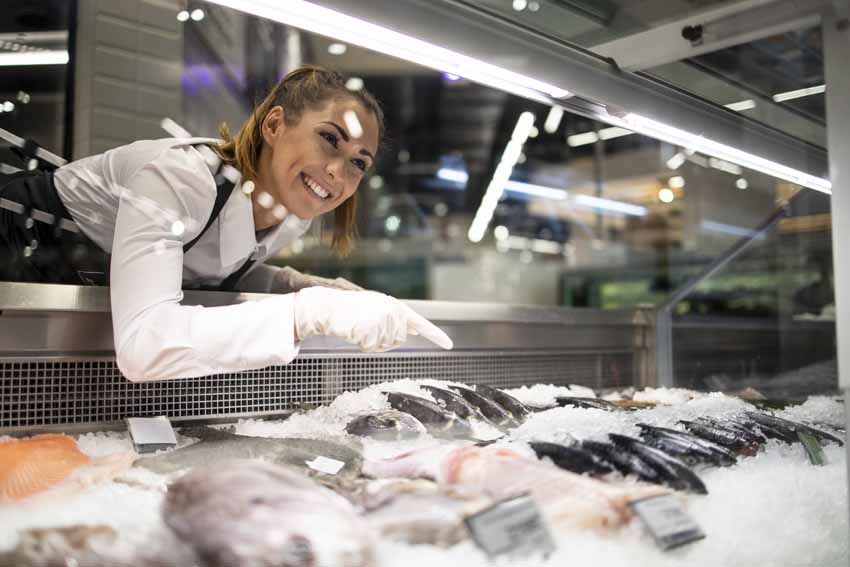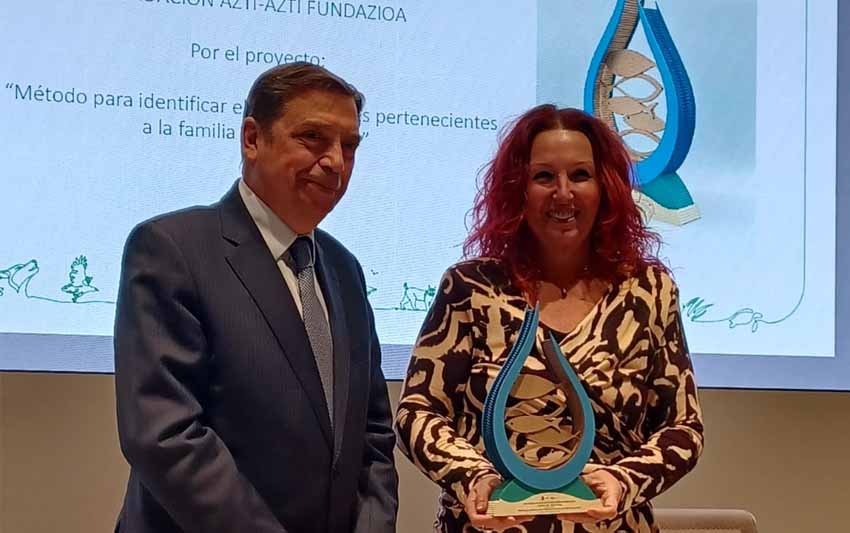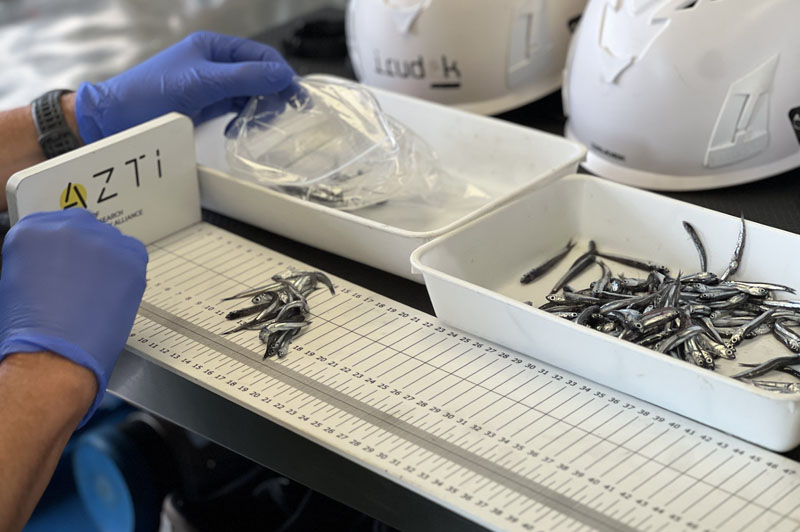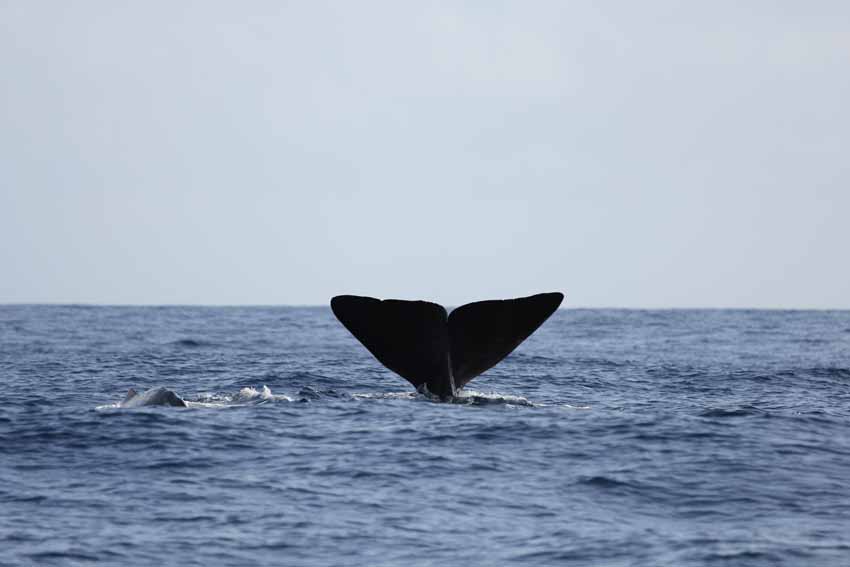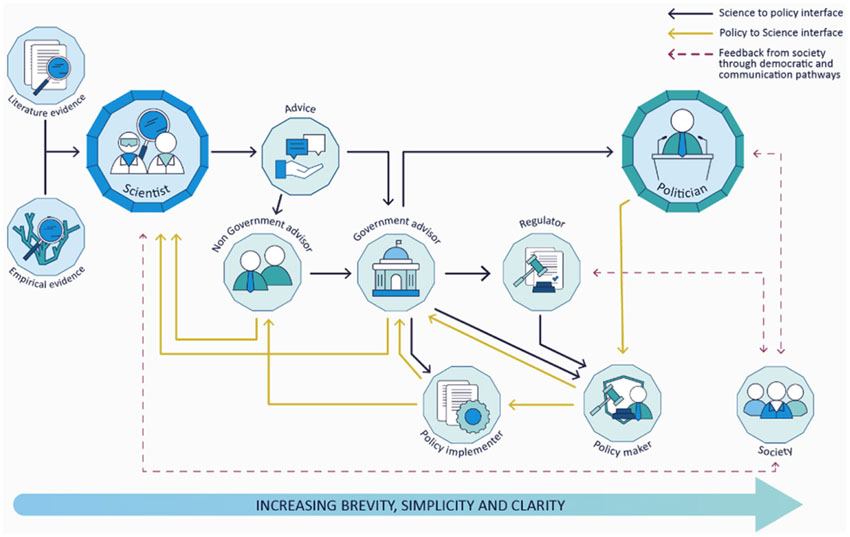Weaving networks for more sustainable seas
Últimas noticias
A pioneering genetic catalogue reveals hidden biodiversity in Basque estuary sediments
Uhinak Technical Committee Sets the Key Points for the 7th International Congress on Climate Change and the Coast
“We fishermen are the ones who earn the least”
- BLUENET, an initiative that seeks to reduce marine litter in the south-eastern Bay of Biscay, by transferring the litter trapped in fishing vessel nets to the mainland, is led by the technology centre, AZTI.
- The project, based on the principles of the circular economy, also plans to recycle and reuse fishing materials to manufacture new lines.
- The technology centres, GAIKER and Next Technology Tecnotessile (Italy), and the company, Itsaskorda, also participate in the project, in which 22 fishing vessels, which have joined the voluntary Fishing for Litter initiative promoted by the project, also collaborate.
Pasaia, 20 June 2019. – Every year, around 8 million tonnes of litter are dumped into the sea, and although the majority originates from land sources, marine debris is increasing. It is estimated that, each year, at least 640,000 tonnes of fishing gear are lost or abandoned in the oceans. This litter is generating growing concern for the environment, as stated by the FAO and the UN Environment Programme. This problem is even further aggravated in the south-eastern Bay of Biscay where litter from the fisheries and aquaculture sectors represent around 34% of the total marine debris.
The BLUENET project, led by the technology centre, AZTI, seeks, precisely, to reduce the litter from marine sources in the south-eastern Bay of Biscay by 20 to 40%.
Another two technology centres, experts in recycling and recuperating plastic litter. and developing textile sector technologies, participate in BLUENET, namely GAIKER and Next Technology Tecnotessile (Italy), together with the company, Itsaskorda, an SME that manufactures and markets lines, nets and rigging for the maritime sector. The latter has considerable international outreach and is a key player for the lines manufactured with recycled material to be validated and accepted by the maritime industry.
The initiative, which was launched at the start of this year, has a two-pronged approach. On the one hand, it consists of storing and transferring marine litter that gets trapped in the nets of fishing vessels to the mainland, to be correctly processed. Secondly, it aims to reuse the remains of lines and nets used in the fishing activity, to obtain an appropriate raw material to manufacture new materials, thus driving the circular economy. In fact, the developments of prototypes, carried out by the partners at a pilot scale, will be validated in the aquaculture sector.
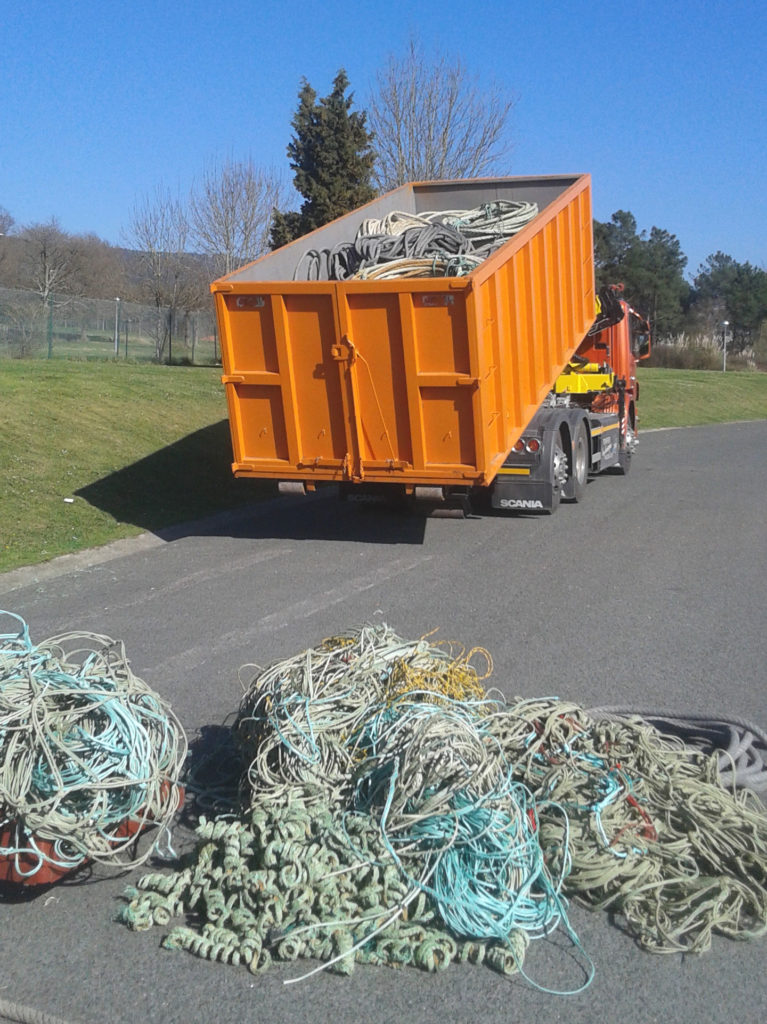
In addition to the coordination work of the initiative, the Basque research centre will be responsible for furthering knowledge of the marine litter caught, mainly in terms of abandoned, lost or discarded aquaculture and fishing tackle, as well as for increasing knowledge about the state of the seas.
“Litter is one of the major environmental problems for marine fauna, causing injuries, physical harm and even the death of aquatic animals. Further, they represent a significant economic cost. Thanks to BLUENET we will reduce the litter, we will be better prepared to advise the fisheries sector, we will provide European policies with better knowledge, and we will be able to apply relevant measures to protect the environment and to improve the sustainability of the economic activity”,
ensures Oihane Cabezas, expert in marine technologies of AZTI.
Índice de contenidos
Engagement of the fisheries sector
One of the key elements of BLUENET is to seek the engagement of the fisheries and aquaculture sector. As a pilot trial, 22 fishing vessels will have big bags on board to store marine litter that gets trapped in their nets. The material collected will be transferred to 4 ports on the Basque coast: Bermeo, Ondarroa, Getaria and Hondarribia, and it will be later characterised at AZTI.
The vessels that are going to participate in the project will do so voluntarily within the Fishing for Litter initiative, an international project promoted by KIMO International that seeks the sector’s active participation for them to take any marine litter trapped in their fishing nets to port.
The engagement of the sector, which has already begun to actively collaborate with the scientific community, will, therefore, be essential for the success of this project, which will run until the end of 2020. “We want the sector to participate in order to find a solution to this environmental problem. To this end, we will promote their proactivity through marine literacy, mainly with nautical science students, and we will avoid the dumping of nets and lines into the sea”, Cabezas adds.
In addition to the fisheries sector, agents such as the Fisheries Department of the Basque Government, authorities, guilds and cleaning services are involved in BLUENET. This will enable the waste management plan to be as inclusive as possible, and to be pursued further in the future, even after the project ends.
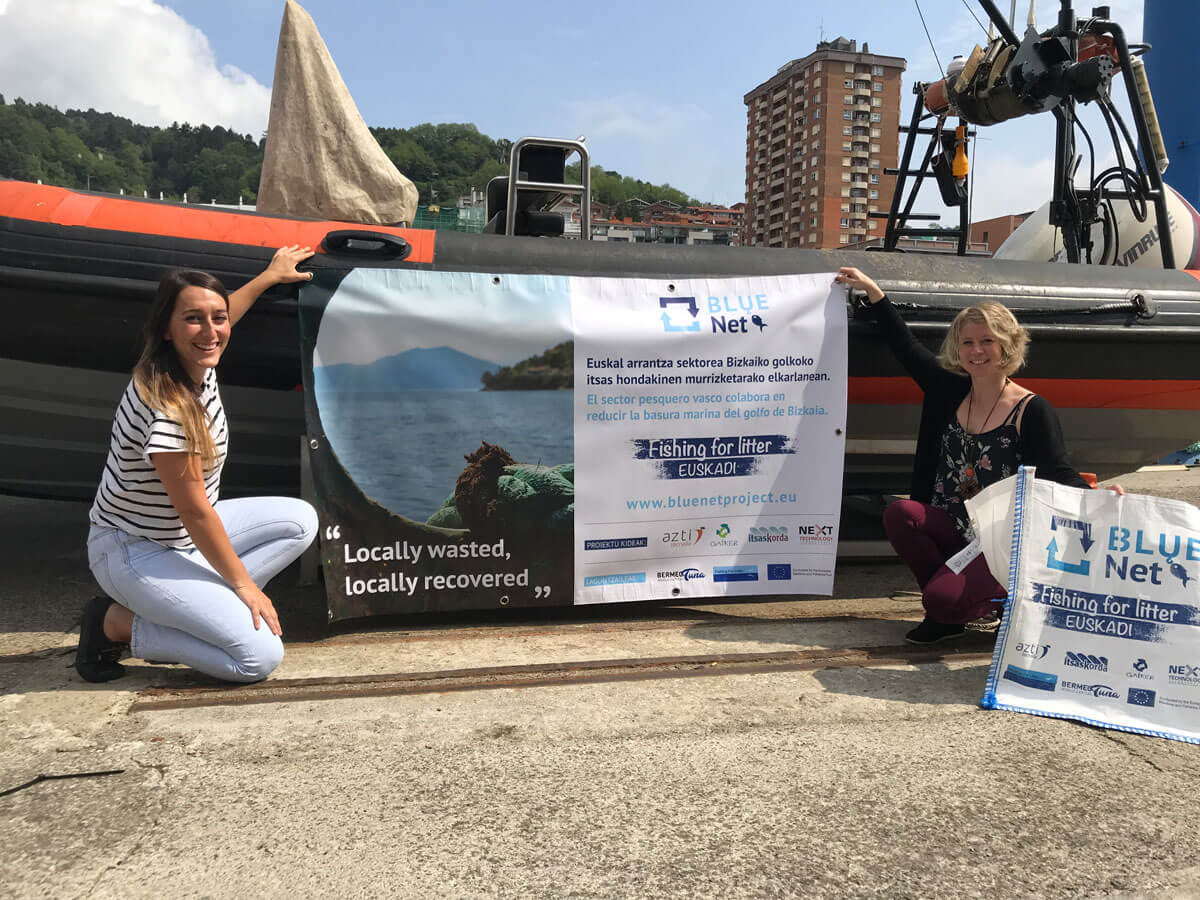
Benefits for the sector
Thanks to this initiative, the fisheries sector will obtain different benefits to continue advancing on the road towards sustainable fishing. On the one hand, the port facilities will be improved, to make it easier for fishing vessels to transfer the litter from the sea to the mainland. On the other hand, a study will be conducted on the possibility of the reuse of the lines made with recycled raw material from fishing nets, thus reverting the benefit to the actual sector.
Moreover, the project will provide visibility, at a local and international level, of the sector’s commitment to this environmental problem, as information awnings will be installed in all four ports involved.
With a budget of 688,364 Euros and co-financed by the fund for the EU’s maritime and fisheries policy for 2014-2020 EMFF, BLUENET has also received collaboration from the Bermeo Tuna World Capital Association.
About AZTI
AZTI is a research centre that specialises in the food and maritime fishing value chain that carries out strategic and applied research to generate new knowledge. It provides comprehensive, innovative solutions that serve as a base to invigorate new businesses.
Its aim is to transform Science into Sustainable and Healthy Development. To do so, AZTI has a team of committed skilled individuals who establish a symbiotic relationship and strategic bond with clients to provide them with value and improve their competitiveness, while contributing to their financial and social development.
The work and research carried out by AZTI has positioned the centre among the best institutes worldwide in terms of citation ranking per article in several of its research fields. It also participates in scientific committees for international fishery management bodies which determine management measures and fishing quotas for various marine zones so that resources are used sustainably.
